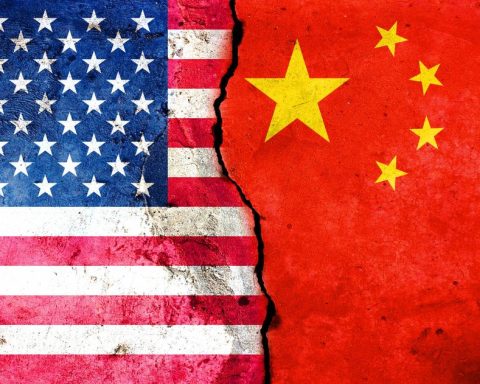Wall Street is preparing for the upcoming fourth-quarter earnings season with growing caution, as analysts warn that soaring artificial intelligence valuations may be creating a financial bubble. Over the past year, AI-related stocks have driven much of the market’s momentum, pushing major indices to record highs. Yet, as Q4 results approach, investors are questioning whether the profits and real-world adoption of AI technologies can justify the staggering market valuations seen across the tech sector.
The AI boom has been fueled by massive investments in generative AI, cloud computing, and semiconductor companies. Firms like Nvidia, Microsoft, and Alphabet have seen their market capitalizations surge as demand for AI infrastructure and software continues to grow. However, recent volatility suggests that investors may be reassessing their expectations. Analysts caution that while AI remains a transformative technology, the rapid rise in stock prices has outpaced the tangible earnings growth in many companies.
According to market strategists, much of Wall Street’s optimism hinges on whether major AI-driven firms can deliver strong Q4 performance and maintain profit margins. Nvidia, for example, is expected to post significant revenue growth due to record GPU sales, but even slight earnings disappointments could trigger widespread market corrections. Smaller AI startups, many of which are not yet profitable, are also facing intense scrutiny as investors seek evidence of sustainable business models beyond hype and speculation.
The concern about an AI bubble mirrors previous market cycles, including the dot-com boom of the early 2000s. Back then, soaring valuations based on future potential rather than present profitability led to a major market crash. Some economists warn that a similar dynamic may be unfolding today, as enthusiasm around artificial intelligence fuels excessive speculation. Despite undeniable progress in machine learning and automation, the profitability timeline for many AI initiatives remains uncertain, especially amid rising operational costs and regulatory hurdles.
Investment banks are advising clients to exercise caution as earnings reports begin to roll in. While some sectors, such as cloud computing and chip manufacturing, continue to show robust demand, others — particularly AI software and startups — may face pressure to prove their value beyond marketing narratives. The Federal Reserve’s interest rate stance also adds complexity, as higher borrowing costs could limit the flow of capital into high-risk tech ventures in the months ahead.
Nevertheless, many analysts argue that the AI revolution is far from over. They note that artificial intelligence is now deeply embedded in everything from healthcare and finance to logistics and entertainment. Even if valuations cool, the long-term potential of AI to reshape industries and improve productivity remains strong. The key challenge for companies will be translating technological promise into consistent profitability — a test that this earnings season will bring sharply into focus.
For investors, Q4 2025 could prove to be a turning point. Strong earnings results could validate current valuations and reinforce confidence in AI’s economic potential. Conversely, weak performance could trigger a correction, shaking out speculative capital and refocusing the market on fundamentals. Either way, Wall Street’s reaction to the upcoming results will likely set the tone for how the world views the balance between innovation, profitability, and speculation in the age of artificial intelligence.














